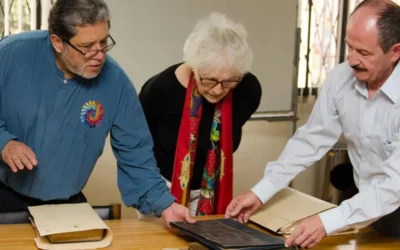Modifying Schedules for Archival Projects
Margot Note
By their nature, all archival projects have elements of uncertainty. Obstacles, some inevitable, can cause missed deadlines, cost overruns, and poor performance. Archivists must expect problems and re-plan activities and shift resources as unforeseen challenges occur. Modifying the schedule is one way to solve problems related to project delays.
Schedule Compression Techniques
There are several schedule compression techniques you can use; all carry some risk. “Crashing” adds resources to critical path activities. However, some actions can’t be completed faster by adding more workers. They often add overhead that negates any time savings. Another technique is fast-tracking when you perform critical path activities in parallel. This high-risk technique increases the likelihood of rework. Process improvements allow you to increase productivity using different processes, technologies, and equipment. In some circumstances, process improvements are unavailable or may increase risks. Finally, deploy overtime for limited periods. When used too much, morale and work quality can decrease.
Simultaneous Sometimes Trumps Consecutive
Execute phases simultaneously when possible, even if your original plan intended consecutive scheduling. Be aware that some steps must run consecutively. A later phase can’t start until the results of the earlier phase are available. In these instances, delays are troublesome since your team can’t proceed. However, in many cases, you can begin a subsequent task without completing a prior one.
Support your team’s effort to absorb previous delays. A phase may be one team member’s responsibility, but setbacks may make it impossible to complete it on schedule; you might be able to overcome the problem by assigning other team members to help.
Where Else Can You Move Forward?
Begin preliminary steps for future phases to save time. You may be frustrated because delays are keeping your team idle. You can’t accelerate the phase underway or begin the next phase. However, you might be able to save time by partially completing the upcoming tasks. Some late phases in an archival project may be executed in a shorter period than initially scheduled. To do so is the most likely way to make up delays created during earlier phases.
Working with Flexibility
When schedules are shortened, encourage everyone on the team to make each day count. They should be sensitive to changes that increase the scope of the archival project. They should also raise alerts if they find themselves waiting for someone else to complete their work or if they sense a delay. They should start and finish jobs early if they can without compromising quality.
Working overtime may be a way to bring the archival project back on schedule. Most team members will understand the occasional need to catch up on work—but you should ask for overtime only when needed. Not only does paying for overtime increase project cost, it may also lead to burnout, which, in turn, leads to a decrease in efficiency, defeating the purpose.
Distributing Work Evenly
Additionally, there may be a need to balance the amount of work assigned to people on your team, such as lengthening, delaying, and splitting assignments, which will affect the schedule. Extending the duration of tasks and letting them run simultaneously can be helpful when a team member is overloaded. When you increase the duration of tasks, the person works fewer hours on each job during the project. Delaying assignments is another way to balance a team member’s workload, especially if someone has several work packages scheduled at the same time. Delays are ideal when tasks are short because it helps the person stay focused and productive. Splitting a longer assignment into smaller tasks is the third technique for leveling workload, which is a good solution when you need to include a brief, critical task into your schedule.
Look Out for Your Team
Scheduling is done on the assumption that you will have the archival project team you initially planned on or were promised. If someone is working on another project, or a team member will be used for several tasks, you may find that they are overloaded. Look out for and protect your team members so they can achieve project success without burnout.
Margot Note
Margot Note, archivist and consultant, writes for Lucidea, provider of ArchivEra, archival collections management software for today’s challenges and tomorrow’s. Read more of Margot’s posts with advice on running successful archival projects
Similar Posts
Enhancing Collaboration; Methods for Archivists
Archivists can enhance collaboration through user-centric approaches and efficient processing methods based on customer service principles.
Navigating Selection in Archival Practice
The archival selection process is far from straightforward, given the limitations of long-term preservation and ongoing accessibility challenges.
Responsible Stewardship in Archival Practice
Responsible stewardship is a philosophy that guides the actions and decisions of archivists in safeguarding collective memory.
A Modern View of a City’s History via ArchivEra
Brief success story on City of Regina Archives’ use of ArchivEra to manage collections of legal, historical, administrative or financial significance
Hosting service
Enjoy all of the benefits of your Lucidea solution with secure, reliable, stress free hosting
Programs & incentives
No matter your size or budget, we’ve got you covered, today and tomorrow




Leave a Comment
Comments are reviewed and must adhere to our comments policy.
0 Comments